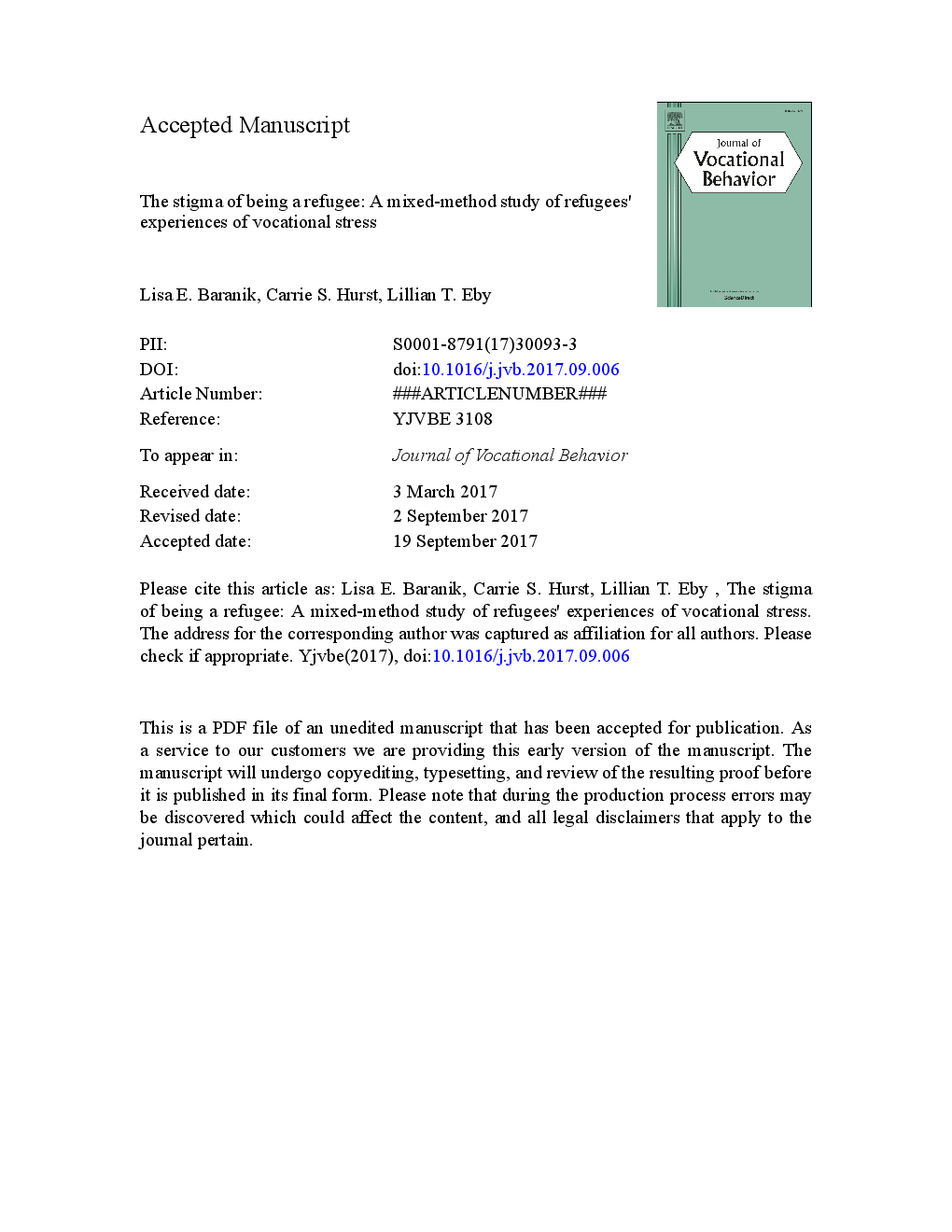ترجمه فارسی عنوان مقاله
آزار و اذیت پناهجویان: مطالعه متداول در مورد تجارب پناهندگان از استرسهای حرفه ای
عنوان انگلیسی
The stigma of being a refugee: A mixed-method study of refugees' experiences of vocational stress
| کد مقاله | سال انتشار | تعداد صفحات مقاله انگلیسی |
|---|---|---|
| 112479 | 2018 | 48 صفحه PDF |
منبع

Publisher : Elsevier - Science Direct (الزویر - ساینس دایرکت)
Journal : Journal of Vocational Behavior, Volume 105, April 2018, Pages 116-130

